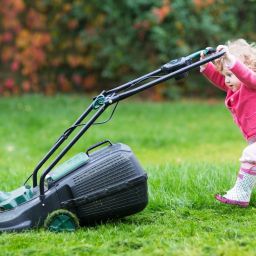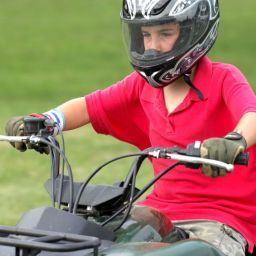Whether in your back yard, at school, or at a local park, playgrounds are a source of fun for a child. Unfortunately, many schools and park districts do not have the resources to constantly check on playground conditions, which is why they need help from people in the community who use the playground. When you see a problem, let the organization managing the playground know—you can be a source of important information needed to help maintain a good play space.
No matter where your kids are playing, remember to check the surfacing first.
Is it the right type? Surfacing should be either loose materials such as wood chips, sand, or pea gravel OR permanent rubber-like materials. Permanent rubber-like surfacing and engineered wood fibers are the only surfaces that meet the requirements of the Americans with Disabilities Act.
Is there enough coverage? Surfacing should extend 6 feet out from the edge of playground equipment. Swings and slides need more coverage depending on how tall they are, so check with the Consumer Product Safety Commission to see exactly how much coverage your playground needs.
Is it in good condition? If surfacing is loose materials, check heavily-used areas like under swings and at the end of slides to make sure 12 inches of material is in place. Check permanent rubber surfacing for worn spots or holes.
If not, make another choice. If you didn’t say yes to these three questions, let the organization that oversees the playground know that the playground needs attention and find a new place to play until the playground meets guidelines.
More tips available at http://www.preventchildinjury.org/toolkits/playgrounds-safe-surfaces.















